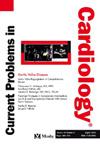Associations between central and brachial blood pressure in patients with hypertension and aortovascular disease: Implications for clinical practice
IF 3
3区 医学
Q2 CARDIAC & CARDIOVASCULAR SYSTEMS
引用次数: 0
Abstract
Central blood pressure (CBP) measurements, compared to brachial blood pressure (bBP), offer a superior predictive accuracy for aortovascular disease outcomes. This emphasises the distinctiveness of central hemodynamic metrics such as CBP, measuring the pressure directly exerted from the cardiac muscle to the major arteries, and provides a more direct assessment of cardiovascular workload than bBP, which measures the pressure against peripheral artery walls. This review synthesises findings evaluating the correlation between CBP and key aortovascular disease markers. Thoracic aortic aneurysm (TAA) growth is a crucial aspect of aortovascular assessment. CBP more accurately correlates with arterial stiffness (AS), the growth of TAA, and cardiovascular diseases, offering a more dependable prediction of aortovascular diseases, adverse cardiovascular events (CVE) and organ damage compared to bBP. The incorporation of CBP into routine clinical practice could enhance aortovascular assessments and therapeutic strategies when compared to bBP, particularly through a deeper understanding of aortic wave dynamics, which could fundamentally alter aortovascular diagnostics and treatment. In conclusion, integrating CBP into aortovascular and cardiovascular risk management is encouraged. Further research is necessary to substantiate these aspects and explore the operative implications of CBP in clinical settings.
高血压和主动脉疾病患者中心血压与肱动脉血压之间的关系:对临床实践的影响。
与肱动脉血压(bBP)相比,中心血压(CBP)测量对主动脉血管疾病结果的预测准确性更高。这强调了中心血流动力学指标(如 CBP)的独特性,CBP 可测量从心肌直接施加到主要动脉的压力,与测量外周动脉壁压力的 bBP 相比,CBP 可更直接地评估心血管工作量。本综述综合了 CBP 与主要主动脉血管疾病指标之间相关性的评估结果。胸主动脉瘤(TAA)生长是主动脉血管评估的一个重要方面。与 bBP 相比,CBP 与动脉僵化(AS)、TAA 生长和心血管疾病的相关性更准确,能更可靠地预测主动脉血管疾病、不良心血管事件(CVE)和器官损伤。与 bBP 相比,将 CBP 纳入常规临床实践可增强主动脉血管评估和治疗策略,特别是通过对主动脉波动态的更深入了解,这将从根本上改变主动脉血管诊断和治疗。总之,将 CBP 纳入主动脉血管和心血管风险管理是值得鼓励的。有必要开展进一步研究,以证实这些方面并探索 CBP 在临床环境中的操作意义。
本文章由计算机程序翻译,如有差异,请以英文原文为准。
求助全文
约1分钟内获得全文
求助全文
来源期刊

Current Problems in Cardiology
医学-心血管系统
CiteScore
4.80
自引率
2.40%
发文量
392
审稿时长
6 days
期刊介绍:
Under the editorial leadership of noted cardiologist Dr. Hector O. Ventura, Current Problems in Cardiology provides focused, comprehensive coverage of important clinical topics in cardiology. Each monthly issues, addresses a selected clinical problem or condition, including pathophysiology, invasive and noninvasive diagnosis, drug therapy, surgical management, and rehabilitation; or explores the clinical applications of a diagnostic modality or a particular category of drugs. Critical commentary from the distinguished editorial board accompanies each monograph, providing readers with additional insights. An extensive bibliography in each issue saves hours of library research.
 求助内容:
求助内容: 应助结果提醒方式:
应助结果提醒方式:


